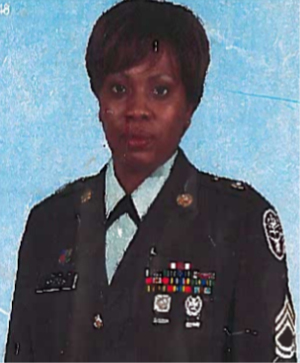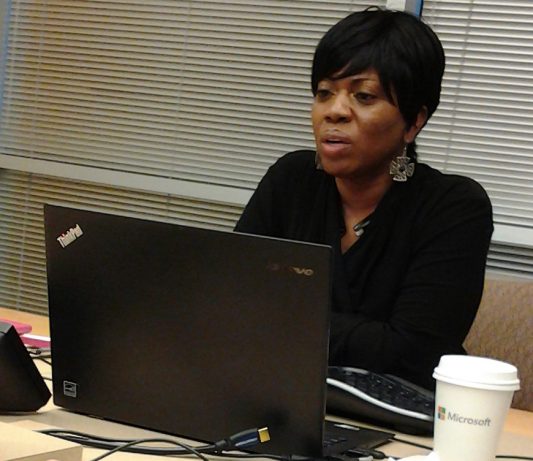Being all she can be, in the Army and now at Microsoft
Serena Branch’s decision to join the Army after graduating from high school was clinched by five simple words: “Be all you can be.” For more than 20 years, the advertising slogan inspired Branch and recruits like her to serve their country; Branch served for 26 years. Today she works for Microsoft, and she credits Microsoft Software & Systems Academy (MSSA) for inspiring her in a new civilian career after retiring from the Army.

MSSA is an intensive, 18-week program that provides service members with tech training, mentorship and career counseling. Those who successfully complete the program gain an interview for a full-time job with Microsoft or one of its hiring partners. Branch studied coding, working with other members of her cohort to master the material and carry out projects such as creating a computer game.
“Honestly, I never felt that I mastered coding, but I accepted the challenge of learning something totally new,” Branch says. “I also did not limit my skills to just learning the information that was presented in class. I listened to our mentors, who told us to sell the total person. Microsoft can always teach you technical skills, but it is difficult to teach valuable skills and attributes that are deep-rooted in soldiers, such as loyalty and initiative, being a team player, and being hardworking and creative.”
Branch had experience with teamwork and initiative as a mental health specialist in the Army. She managed teams of 5–10 specialists, providing patient care as well as coordinating everything from IT resources to budget. She loved the camaraderie and the ability to help her fellow soldiers. She also loved the chance to see different parts of the country and the world, living and serving in more than 10 places throughout her career. Her first assignment was in Texas, and at the time she resolved to come back and retire there; when she found herself in Texas again after more than 20 years of service, she decided it was time to put down roots and plan her transition to civilian life. At a transition workshop sponsored by the Army, she heard about MSSA and was inspired to apply. She knew it was the best next step.
“It was just a great opportunity,” Branch says. “I had really no IT experience other than acquiring resources for my teams, as well as just turning on the computer, so it was all very new for me. But it was always something I wanted to do, and I thought this was such a good segue to the IT realm.”
The program was even more challenging than she expected. Branch quickly decided that she would need to collaborate with the other members of her cohort to succeed, which included working closely with officers, also in the program — something that hadn’t been the norm for her.

“We train as a team when we go out to war, but typically you do not have enlisted service members and officers in the same classroom,” Branch says. “But we knew that we all had a common goal and a very demanding job. It’s simple to turn on a computer and type and use programs, but to know how to make those programs work is totally different. We really had to rely on one another to get through the course.”
Within three months of retiring from the Army, Branch was hired on at Microsoft as a FastTrack manager, helping customers and partners deploy Office 365 and Enterprise Mobility Suite workloads to the cloud. Her mental health work in the Army gave her customer service skills and insight into people, while MSSA gave her the technical knowledge to help ensure that customers are getting the most from their technology investments.
Branch is currently completing a bachelor’s degree in psychology, with hopes of moving into Microsoft teams that use surveys and research to better understand customers’ needs and how they interact with technology. She also regularly speaks with current service members at events or one-on-one to make sure they know about their options when they’re ready to transition to civilian life. She even approaches soldiers while she’s shopping at the Army & Air Force Exchange Service (AAFES) or attending an event at the USO center and tells them about how she found her current position at Microsoft, and urges them to apply to MSSA.
When talking to current service members in MSSA, “I say the biggest thing is to keep trying; even though the class is difficult, do not give up,” Branch says. “I tell them go to the interview and sell not only those skills that they acquired while attending the MSSA program but those they acquired while they were in the military. Those skills are just as marketable as the technical skills that they learn from the MSSA program.”
